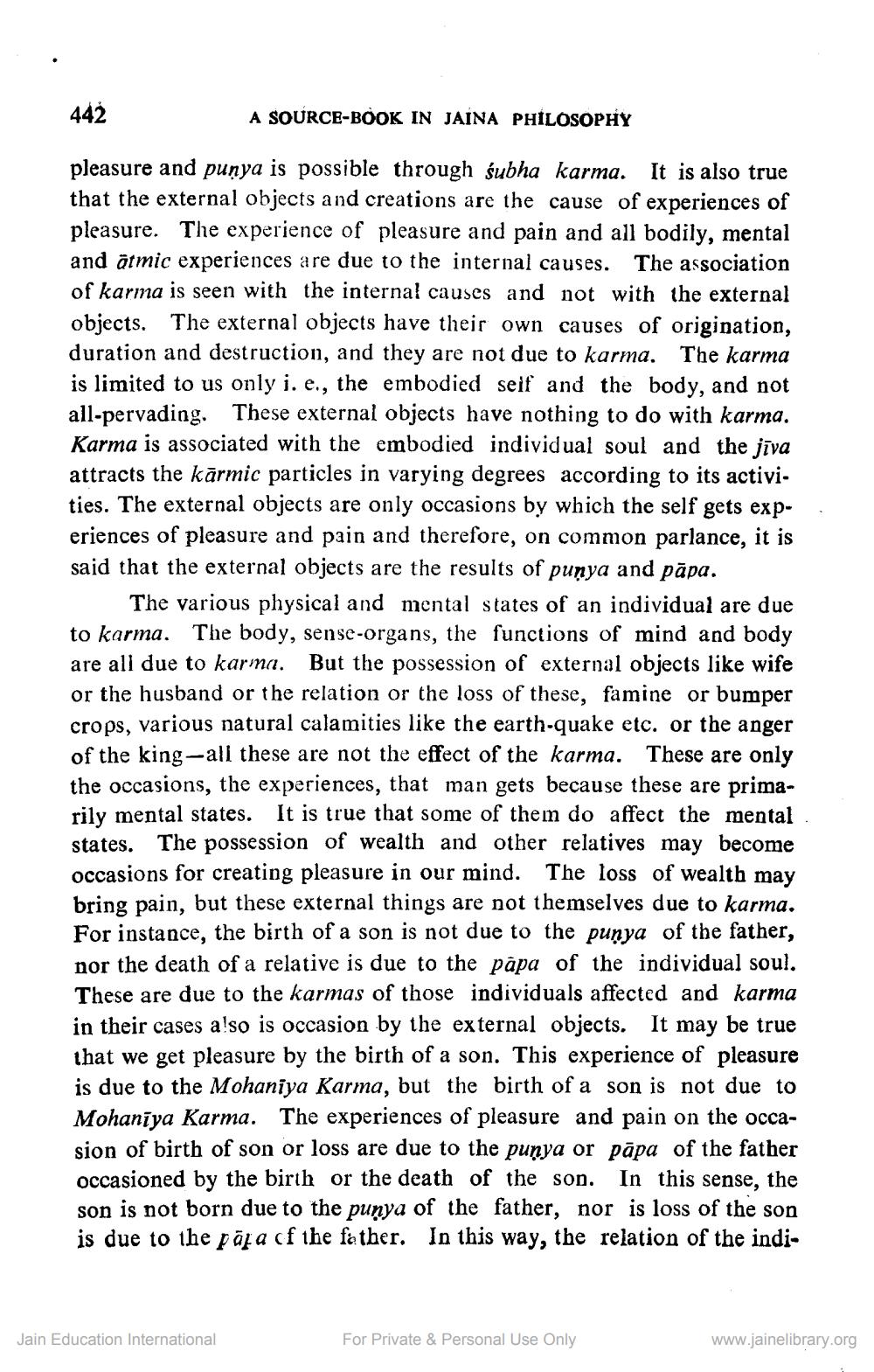________________
442
A SOURCE-BOOK IN JAINA PHILOSOPHY
pleasure and punya is possible through śubha karma. It is also true that the external objects and creations are the cause of experiences of pleasure. The experience of pleasure and pain and all bodily, mental and ärmic experiences are due to the internal causes. The association of karma is seen with the internal causes and not with the external objects. The external objects have their own causes of origination, duration and destruction, and they are not due to karma. The karma is limited to us only i. e., the embodied seif and the body, and not all-pervading. These external objects have nothing to do with karma. Karma is associated with the embodied individual soul and the jīva attracts the kārmic particles in varying degrees according to its activi. ties. The external objects are only occasions by which the self gets experiences of pleasure and pain and therefore, on common parlance, it is said that the external objects are the results of punya and pāpa.
The various physical and mental states of an individual are due to karma. The body, sense-organs, the functions of mind and body are all due to karma. But the possession of external objects like wife or the husband or the relation or the loss of these, famine or bumper crops, various natural calamities like the earth-quake etc. or the anger of the king-all these are not the effect of the karma. These are only the occasions, the experiences, that man gets because these are primarily mental states. It is true that some of them do affect the mental states. The possession of wealth and other relatives may become occasions for creating pleasure in our mind. The loss of wealth may bring pain, but these external things are not themselves due to karma. For instance, the birth of a son is not due to the punya of the father, nor the death of a relative is due to the papa of the individual soul. These are due to the karmas of those individuals affected and karma in their cases also is occasion by the external objects. It may be true that we get pleasure by the birth of a son. This experience of pleasu is due to the Mohaniya Karma, but the birth of a son is not due to Mohanīya Karma. The experiences of pleasure and pain on the occasion of birth of son or loss are due to the punya or pāpa of the father occasioned by the birth or the death of the son. In this sense, the son is not born due to the punya of the father, nor is loss of the son is due to the pāja cf the father. In this way, the relation of the indi
Jain Education International
For Private & Personal Use Only
www.jainelibrary.org




